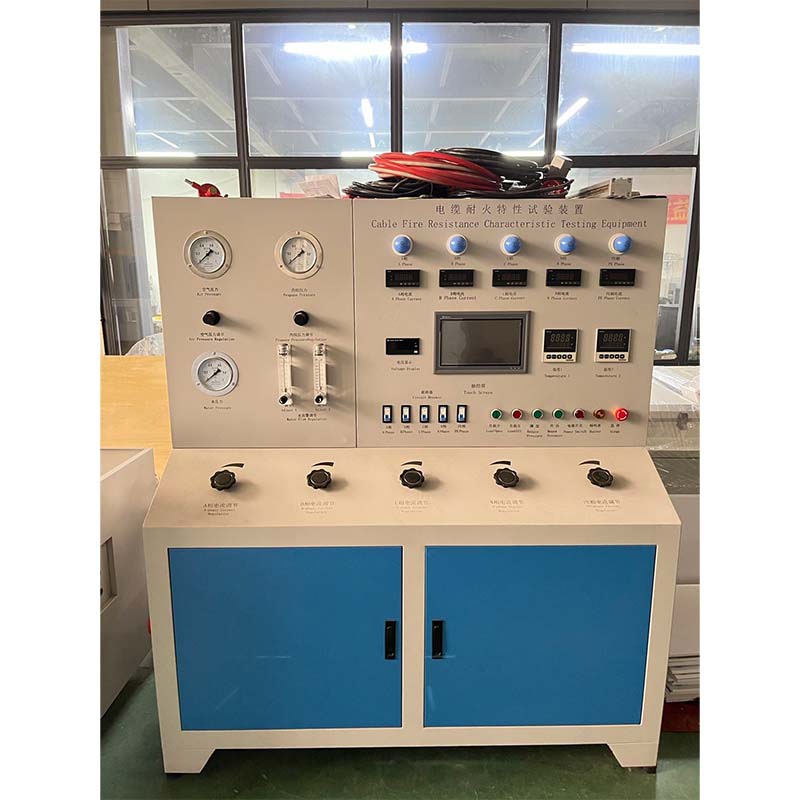Suppliers of Fabric Tensile Strength Testing Equipment for Accurate Results
Understanding the Importance of Fabric Tensile Strength Testers and Selecting the Right Supplier
In the textile and garment industry, ensuring the quality and durability of fabrics is of paramount importance. One of the key parameters that determine a fabric's performance is its tensile strength, which refers to the maximum amount of tensile (stretch) stress that it can withstand before failing. This characteristic is crucial for various applications, from clothing to industrial textiles. As such, fabric tensile strength testers play a vital role in evaluating and guaranteeing the integrity of textiles. This article explores the significance of these testing devices and how to choose the right supplier for your needs.
What is a Fabric Tensile Strength Tester?
A fabric tensile strength tester is a piece of equipment designed to measure the strength of fabrics under tension. The testing process involves subjecting a sample of fabric to a controlled pulling force until it either fails or reaches its maximum load capacity. The results provide insight into the fabric's durability, which is essential for manufacturers, retailers, and consumers alike.
The tensile strength of a fabric is influenced by various factors, including the type of fibers used, the weave or knit structure, and any treatments or finishes applied to the material. By accurately measuring these properties, manufacturers can ensure that their products meet industry standards and consumer expectations.
The Importance of Tensile Strength Testing
1. Quality Assurance To maintain high quality, manufacturers must test their fabrics to ensure they meet specific tensile strength requirements. This testing helps identify weaknesses and facilitates improvements in production techniques.
2. Compliance with Standards Many industries adhere to strict regulations and standards that mandate specific tensile strength levels for different types of fabrics. Testing helps manufacturers comply with these requirements, avoiding potential legal issues and maintaining their reputation.
3. Consumer Safety The durability of fabric affects not only aesthetic appeal but also safety. Fabrics used in protective clothing, such as workwear and sports gear, must meet stringent strength standards to ensure user protection.
4. Product Development Understanding the tensile strength of fabric allows designers and product developers to create better products tailored to specific consumers' needs. This knowledge helps in the selection of appropriate fabrics for various applications, including outdoor gear, upholstery, and more.
fabric tensile strength tester supplier

Selecting the Right Fabric Tensile Strength Tester Supplier
Choosing the right supplier for fabric tensile strength testers is a crucial decision that can impact your operations. Here are key factors to consider
1. Reputation and Experience Look for a supplier with a solid reputation in the textile testing industry. Experienced suppliers are more likely to provide reliable equipment and customer support.
2. Quality of Equipment Ensure that the testing machines offered by the supplier are of high quality, adhering to international testing standards. Look for certifications and accreditations that establish the credibility of the testing equipment.
3. Customer Support and Service A reputable supplier should offer excellent customer support, including installation assistance, training for your staff, and ongoing maintenance services. Effective communication is essential for resolving issues that may arise.
4. Range of Products Your supplier should provide a variety of testing equipment beyond just tensile strength testers. A comprehensive range of products allows for future testing needs as your business evolves.
5. Reviews and Testimonials Check reviews and testimonials from other customers to gauge the reliability and performance of the supplier's equipment. Feedback from real users provides insight into the effectiveness of the products and service.
6. Pricing and Warranty While cost is an essential factor, it should not be the only consideration. Evaluate the warranty and service agreement offered by the supplier, as a longer warranty may indicate confidence in the product’s reliability.
Conclusion
Fabric tensile strength testers are essential tools in maintaining and ensuring the quality of textiles. By understanding their significance and selecting the right supplier, manufacturers can enhance their production processes, meet regulatory requirements, and deliver superior products to consumers. In a competitive market, investing in high-quality testing equipment from a reputable supplier will not only improve fabric quality but also strengthen brand loyalty and customer satisfaction.
-
Why the Conductor Resistance Constant Temperature Measurement Machine Redefines Precision
NewsJun.20,2025
-
Reliable Testing Starts Here: Why the High Insulation Resistance Measuring Instrument Is a Must-Have
NewsJun.20,2025
-
Flexible Cable Flexing Test Equipment: The Precision Standard for Cable Durability and Performance Testing
NewsJun.20,2025
-
Digital Measurement Projector: Precision Visualization for Modern Manufacturing
NewsJun.20,2025
-
Computer Control Electronic Tensile Tester: Precision and Power for the Modern Metal Industry
NewsJun.20,2025
-
Cable Spark Tester: Your Ultimate Insulation Assurance for Wire and Cable Testing
NewsJun.20,2025
 Copyright © 2025 Hebei Fangyuan Instrument & Equipment Co.,Ltd. All Rights Reserved. Sitemap | Privacy Policy
Copyright © 2025 Hebei Fangyuan Instrument & Equipment Co.,Ltd. All Rights Reserved. Sitemap | Privacy Policy
